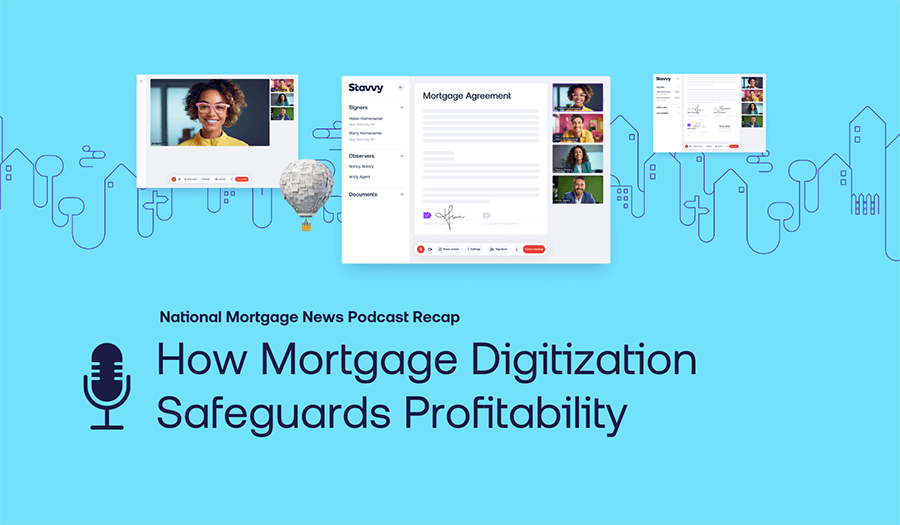While the industry keeps a close eye on mortgage rates, other opportunities in the housing market must be addressed, like the lack of equality in homeownership.
Alexia Smokler, Director of Fair Housing Policy and Programs for the National Association of REALTORS® and Finside Chats® podcast guest, is passionate about closing the housing gap through increased awareness, education, and access to affordable home loan programs.
“Now, we're seeing more of a willingness to ask, ‘How can we change our systems that were created decades ago to perhaps serve a certain type of consumer, to better serve consumers that have been left out?’"
- Alexia Smokler, National Association of REALTORS®
Alexia acknowledges that incremental progress has been made in fair lending. However, there are still significant opportunities that demand attention. She points out that one of the biggest problems is a lack of awareness and education about homeownership inequality.
Alexia joined Jeremy Potter and Angel Hernandez on the Stavvy Finside Chats® podcast to share why addressing homeownership inequality starts with improving visibility and education.
On this episode of Finside Chats®, you’ll learn about:
- Homeownership obstacles for diverse communities and clients
- How the mortgage industry can prioritize affordable home loan programs
- Digital mortgage technology’s role in addressing homeownership inequality
Listen now: Addressing Homeownership Inequality Starts with Education
Despite affordable home loan programs, obstacles remain
Alexia’s research casts a dark shadow on just how much of the past we have brought forward with us despite fair housing laws, policies, and good intentions.
“It has been more than 50 years since the passage of the Federal Fair Housing Act. And despite that, we still see a 30% point gap in homeownership today.”
Homeownership typically hinges on three major factors: downpayment funds, credit score, and debt-to-income (DTI) ratio. While easily attainable for some, as Alexia points out, history plays a huge role in future homeownership success.
“Advantage breeds advantage, and disadvantage accumulates.”
Affordable home loan programs offer some relief, but an industry-wide lack of awareness means not many people are presented with these mortgage options.
Changing systems to prioritize affordable home loan programs
Recent history has proven that opportunities for improvement remain. However, the industry is starting to trend in the right direction. Alexia believes we’re moving towards a more holistic approach to loan consideration and creating opportunities for all home buyers.
“Since 2020, a lot more people in this country who don't have the lived experience are waking up to both the gaps and systemic inequalities that persist in places across America and are now looking for solutions,” says Alexia.
This awakening is happening across the real estate and mortgage industries, thanks to efforts from individuals and organizations like Alexia and the National Association of REALTORS®'s ACT! Initiative, which emphasizes accountability, culture change, and training to advance fair housing.
Additionally, progress is being made at the federal level for equal housing and special purpose lending programs, with the Federal Housing Administration (FHA) urging lenders to consider applicants' positive rental history for FHA insurance financing.
A similar change is happening regarding credit scores. Instead of relying solely on traditional FICO scores, FICO 10T is a new opportunity to analyze consumer credit behavior. FICO 10T is a better predictor of someone's ability and likeliness to repay a loan than the credit history snapshot provided by a traditional FICO score.
Technology’s role in addressing homeownership inequality
Digital mortgage technology is changing the foundation of the mortgage space, seen in the rise of remote online notarization and eClosings. Hopefully, the same can be said for addressing homeownership inequality in the mortgage industry.
Digital data, for example, is an excellent place to start.
Accurate data is crucial to the future of fair lending. From creating an equal playing field to accurately matching buyers with affordable properties unbiasedly, access to information will help close housing gaps.
Appraisal biases still exist today, but increased access to data can help flip the narrative. For one, better use of the MLS system could prevent human biases from steering people to certain geographic locations.
“New technology for MLS systems could mean matching down payment assistance programs with listings or even removing certain pre-set neighborhood boundaries that perhaps inadvertently reinforce segregation,” said Alexia.
How to support fair lending in the mortgage industry
While digital technology can help, there must be an enterprise-level commitment to change, says Alexia.
She urges everyone in the mortgage industry to consider the following questions:
- Does your firm have folks who’re competent to serve diverse market segments? Are those people adequately supported?
- Are you offering mortgage down payment or other types of financial assistance?
- Are you listening to the government's latest guidance around special-purpose credit programs?
- How can you tailor lending products for economically disadvantaged applicants?
We must go above and beyond to ensure we offer everyone a fair opportunity to own a home without biases.
“In lending, it is important not to steer folks into particular loans based on biases or assumptions about their identities. You should show them everything that meets their criteria,” recommends Alexia.
The industry is in dire need of increased advocacy. Being part of the solution means sharing knowledge as individuals.
“We can't wait for the government to fix this issue; we have to take it upon ourselves to right our own ship.”
At Stavvy, we’re committed to raising awareness and increasing education about homeownership inequality. Below are helpful resources to learn about fair housing and fair lending.
Fair housing and fair lending resources:
- Fair Housing Resources
- FDIC: Fair Lending Resource Center
- NAR Course - Bias Override: Overcoming Barriers to Fair Housing
- National Fair Housing Training Academy: Basics of Fair Housing Resources
- The Office of Fair Housing and Equal Opportunity
- NAR News & Commentary: Repairers of the Breach
- Fairhaven: A Fair Housing Simulation
- 4 Hot Button Topics in the Mortgage, Fintech, and Real Estate Industries
- Creating Housing and Lending Ecosystems that Drive Change
Learn more about how the  is taking real estate beyond documents.
is taking real estate beyond documents.



![[Webinar Recap] Advancing Your Digital Default Servicing Strategy](https://blog.stavvy.com/hubfs/advancing-your-digital-default-servicing-strategy-blog-recap.png)